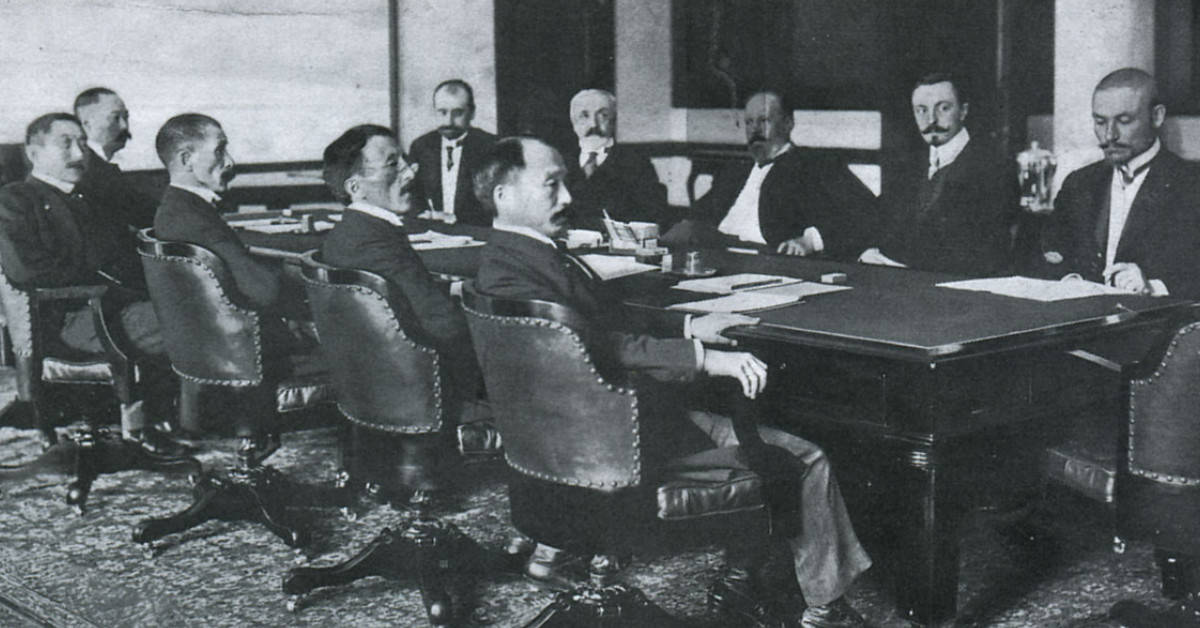Japan is often mentioned in World War II, but what is Japan’s participation in World War I? In this article, we will understand why Japan became involved in the First World War (1914).
The war that began in Europe in 1914 was not called ‘World War’ from the beginning. There is no doubt that it would have been the ‘first’ world war. In the summer of 1914, none of the Europeans expected this war to spread outright just before it began.
However, as the war became fierce and lasted for a long time, this war came to be called the ‘Great War’. If the battlefield had been limited to Europe, this war would never have gotten the name of the ‘World War’. Also, if another ‘war’ had not erupted in 1939, this war, which took place from 1914 to 1919, would not have gained the name of ‘World War I’.
The reason why this war can be called World War is due to the fact that Japan, an Asian country, participated in the war in World War I on the side of the Allies rather than Germany. The war, which was limited to Europe, became the first World War in the history of mankind in terms of scale and geography due to the participation of Japan and the United States later. Scholars who study war sometimes use the term Global War, Hegemonic War, or General War instead of the term World War.
Why Did Japan Participate In The War In Europe?
Then, what is the reason why Japan, which seems geographically irrelevant to Europe in a corner of Asia, stands on the side of Britain, France, and the United States, and wages war against Germany as an enemy? It is judged that this problem can be well explained by examining the structure of the ‘superpower international politics’ formed in the early 20th century. By the beginning of 1900, the world’s great powers were the United Kingdom, France, Germany, Russia, Austria, Hungary, and the United States.
Britain, which was the world’s dominant country at the time, believes that maintaining the balance on the continent of Europe is the key to maintaining the British hegemony and the British Empire that spans all over the world, and does not form an alliance with any country on the continent. ‘Glorious isolation policy’ or ‘flexible balancer policy’ was taken as the principle of foreign policy.
Around this time, rapidly emerging countries were Russia, the United States, and Japan. After defeating Spain in 1889, the United States became a force extending into the Pacific region, and Russia also began to expand its force into East Asia. The British, which considered Russia’s power to be a force that must be stopped, decided to stop Russia’s expansion to the Far East through Japan, and signed an alliance with Japan in 1902 to end its glorious isolation policy.
At that time, it was embarrassing to Japan that the British and Japanese allied. There were some who compared the English-Japanese alliance to ‘marriage between the moon and toad’, and the signing of an alliance with the UK became a shortcut for Japan to become a world powerhouse.
Japan gained a say in the world diplomatic arena through the English-Japanese alliance, driving the momentum of victory in the Sino-Japanese War, defeating even Russia in 1904, and from 1905 onwards as a world powerhouse recognized by others.
After winning the Russo-Japanese War, Japan pursued an imperialist expansion path, but Japan’s expansion ambition was compelled to collide with the interests of other imperialist powers. Of course, Japan pursued proficient foreign policy in parallel with the imperialist expansion policy. Just as the core axis of Japan’s foreign policy now lies in the US-Japan alliance, the basic axis of Japanese foreign policy for decades after 1902 was the English-Japanese alliance.
The Subtle Position Of The Allies
The outbreak of World War I could not but be a temporary disturbance in the international order that suppressed the expansion of Japan. Japan could not miss this opportunity. They took this opportunity to secure an absolute edge in China. Japan’s Meiji era politician Kaoru Inoue frankly said that the outbreak of World War I was an opportunity for the sky to help Japan.
At that time, the Allied powers’ position on the war in Japan was subtle. While there was a view to maintain China’s neutrality, Britain was concerned that British colonies in China, especially Hong Kong, would be the target of German invasion. Japan’s military power was needed to protect it.
Seeing Japan’s response to the UK’s demands so actively, the UK was rather suspicious of Japan’s intentions. China declared neutrality, Germany returned the area of Jiaozhou Bay to China, and the United States also insisted that China remain neutral.
In the end, Britain demanded that Japan cancel its participation in the war. Japan requested the British to participate in the war, and the British agreed to Japan’s participation in the war on condition that the Japanese combat zone was limited to those necessary for Japan’s maritime trade protection. Of course, British combat restrictions were not observed. It was a ‘promise that cannot be kept’ from the beginning due to the nature of the war.
Japan issued an ultimatum to Germany on August 15, 1914, followed by a declaration of war against Germany on the 8th and 23rd and against Hungary on August 25th. And Japan soon entered the path of invasion of China. It was presented to China that it was a ‘request for 21 reforms’ (January 18, 1915).
These were the vast requirements to establish Japan’s dominant position across mainland China. China, of course, rejected this, and Japan sent an ultimatum to China as an excuse (May 7, 1915). China finally accepted Japan’s request on May 9, two days later. China remembers this day as a national holiday.
In early 1917, Japan dispatched a navy to the Mediterranean Sea at the request of the Allies. Of course, it was an act of hoping for a price. Japan has received promises from Britain, Russia, France and Italy that the German rights and interests in Shandong Province of China and German colonies in the north-eastern Pacific region could be acquired by Japan.
The gains Japan gained from participating in World War I were not as great as Japan thought. In particular, Japan’s ambition has despaired many Asian nations who considered Japan as the ‘Asian hope’ that could win even if they fight the West.
Nevertheless, Japan was able to grow into a stronger country through World War I, and Professor Marius Jensen, an authority on modern Japanese history, estimates that Japan has become one of the world’s top five powers over the past 20 years after the Russo-Japanese War. .
Japan’s Larger Scale Speaks Of Demands
Japan attended the Versailles Reinforcement Conference in 1919, which ended World War I, as a representative of the victorious nations, and during the war, allied nations demanded the fulfillment of what they promised Japan. Japan’s demand was to face the position of the United States, which led World War I to victory for the Allies.
While President Wilson emphasized the principle of national self-determination, Japan was demanding the expansion of colonial rule. The Korean people, who were under Japanese oppression at the time, were excited about the expectation that President Wilson of the United States would make Korea independent, and such expectations became one of the backgrounds of the March 1 independence movement.
When President Wilson expressed discomfort to Japan’s request, Japan raised a grim claim that it would not participate in the reinforcement talks. At that time, the size and prestige of Japan had grown that much. The US, which feared that even Japan would leave, while Italy had already left the country, finally accepted Japan’s demand.
Wilson gave up on his own idealistic and moral international political principles. Wilson’s ‘Realistic International Politics’, which says that if Japan rejects its request and leaves the reinforcement conference, Japan may unite with countries dissatisfied with the outcome of World War I, such as Germany and the Soviet Union, and destroy international politics. Idealism was destroyed as it was.
Frustrated Idealism, International Politics Was ‘Reality’
“I know I will be accused of violating the principles. But I was compelled to work for the world order and international organizations against the revival of anarchism and militarism.”
Wilson later
This was an opportunity to explicitly reveal that international politics is not an area governed by morality, but an area governed by power and national interests. In the spring of 1919, the hopeful expectations of the Koreans were frustrated by the fact that Japan was a country that was included in the victorious country, and that international politics was the politics of power.
During the First World War, Japan achieved a significant increase in naval power, a symbol of the power of a great power. In 1921, Japan’s naval budget increased to 25% of the Japanese national budget. At the World Naval Disarmament Conference held in Washington, USA in 1922, the third year after the end of World War I, the Japanese Navy was treated as the ‘three largest navy in the world’ after the United Kingdom and the United States.
See Also









